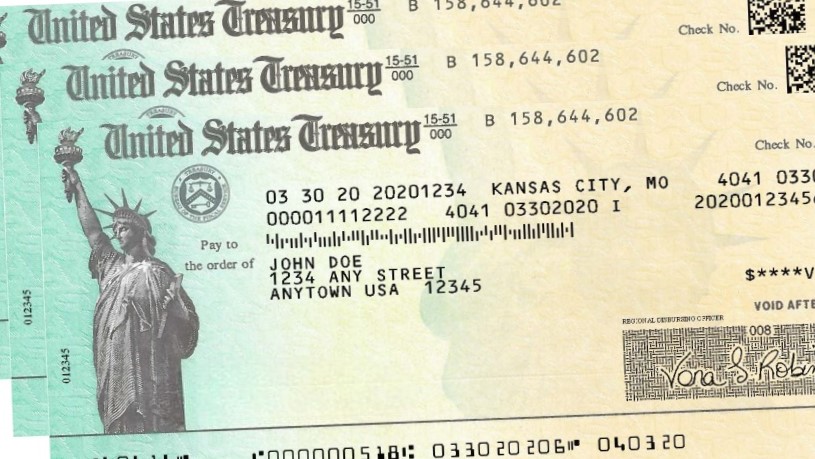
- Details
- By Native News Online Staff
The Internal Revenue Service (IRS) has announced plans to issue automatic payments later this month to eligible individuals who did not claim the Recovery Rebate Credit on their 2021 tax returns. This initiative follows a review of internal data that identified many taxpayers who filed a return but overlooked claiming the credit.
The Recovery Rebate Credit is a refundable credit designed for individuals who did not receive one or more Economic Impact Payments (EIPs), commonly referred to as stimulus payments.
 Make A Donation Here
Make A Donation Here
No Action Required for Eligible Taxpayers
Eligible taxpayers do not need to take any action to receive these payments. The IRS will automatically send the payments, which are expected to arrive via direct deposit or paper check by late January 2025. Recipients will also receive a separate letter confirming the payment.
“The IRS continues to work hard to support taxpayers,” said IRS Commissioner Danny Werfel. “By examining our internal data, we identified approximately one million taxpayers who were eligible for this credit but didn’t claim it. To simplify the process and ensure these individuals receive their payment, we are issuing the payments automatically, eliminating the need for them to file an amended return.”
Payment Details
The maximum payment amount is $1,400 per individual, with the total payments estimated to reach $2.4 billion. Payment amounts will vary based on several factors.
The IRS also reminds taxpayers who haven’t yet filed their 2021 tax returns that they may still be eligible for the credit, provided they file by April 15, 2025.
Most Taxpayers Have Already Claimed the Credit
The majority of taxpayers eligible for EIPs or the Recovery Rebate Credit have already received their payments. These upcoming December payments are specifically for those who filed a 2021 tax return but either left the Recovery Rebate Credit field blank or entered $0, despite being eligible for the credit.
How Automatic Payments Will Be Issued
For taxpayers who qualify, payments will be issued to the bank account provided on their 2023 tax return or sent to the address on file. If a taxpayer’s bank account has been closed, the payment will be returned to the IRS and reissued as a check to their address of record. Recipients will also receive a letter detailing the payment.
Additional Information and Filing Deadline
Taxpayers with questions about eligibility or payment calculations can visit the IRS’s 2021 Recovery Rebate Credit Questions and Answers page.
For those who did not file a 2021 tax return, the IRS encourages them to file by April 15, 2025, to claim the credit and any other potential refunds.
This effort reflects the IRS’s commitment to making the process easier for taxpayers and ensuring that eligible individuals receive the benefits they are entitled to without additional administrative burdens.
More Stories Like This
Native News Weekly (August 25, 2024): D.C. BriefsUS Presidents in Their Own Words Concerning American Indians
Federal Judge Orders ICE to Halt Use of Pepper Spray, Arrests of Peaceful Protesters in Twin Cities
Tunica-Biloxi Cultural Leader John D. Barbry Walks On
Next on Native Bidaské: Federal ICE Activity in Minneapolis: Ruth Buffalo’s Perspective
Help us defend tribal sovereignty.
At Native News Online, our mission is rooted in telling the stories that strengthen sovereignty and uplift Indigenous voices — not just at year’s end, but every single day.
Because of your generosity last year, we were able to keep our reporters on the ground in tribal communities, at national gatherings and in the halls of Congress — covering the issues that matter most to Indian Country: sovereignty, culture, education, health and economic opportunity.
That support sustained us through a tough year in 2025. Now, as we look to the year ahead, we need your help right now to ensure warrior journalism remains strong — reporting that defends tribal sovereignty, amplifies Native truth, and holds power accountable.
 The stakes couldn't be higher. Your support keeps Native voices heard, Native stories told and Native sovereignty defended.
The stakes couldn't be higher. Your support keeps Native voices heard, Native stories told and Native sovereignty defended.
Stand with Warrior Journalism today.
Levi Rickert (Potawatomi), Editor & Publisher

